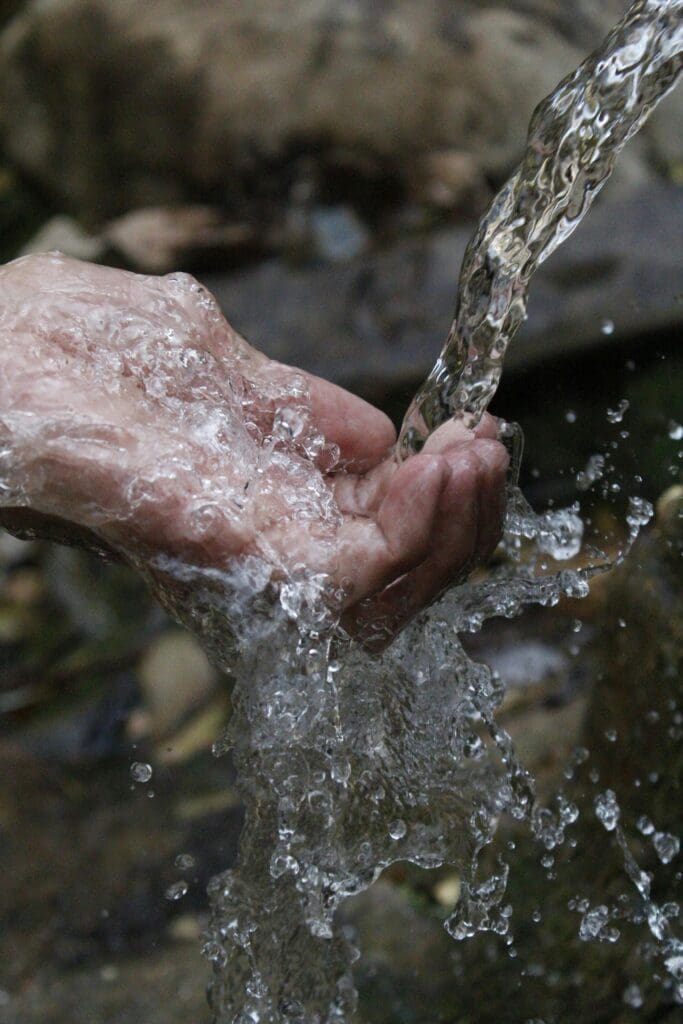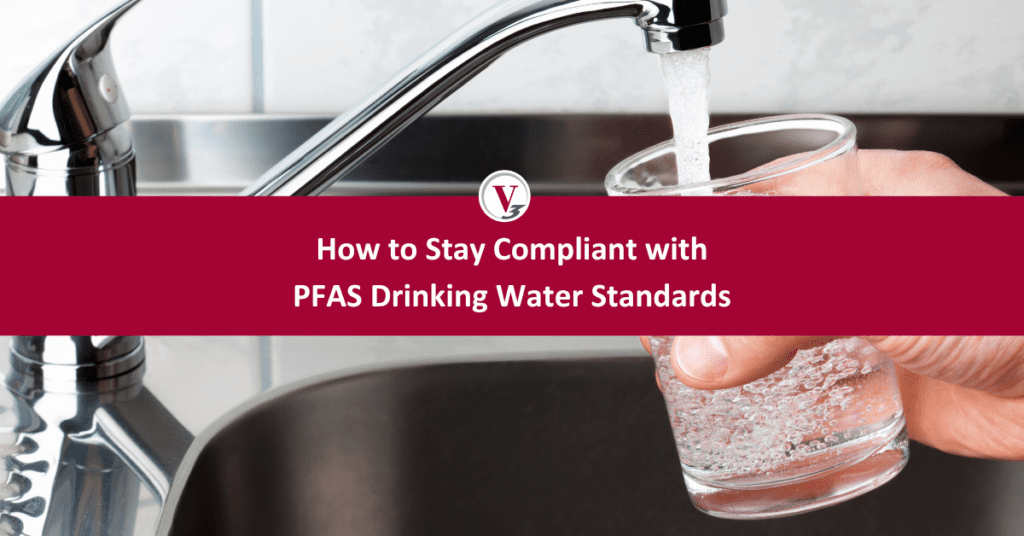Delivering clean, healthy drinking water is an increasingly demanding endeavor, especially in light of the EPA’s recent PFAS regulations. V3’s water engineers and scientists are closely monitoring the advancing science and regulations in this emerging environmental priority; learn more about what’s at stake and how to address PFAS in public drinking water supply.
How PFAS affect the water system

PFAS stands for “perfluoroalkyl and polyfluoroalkyl substances,” which are man-made chemicals that have been present in consumer goods for decades. Known as “forever chemicals” due to their extreme resistance to breaking down naturally in the environment, PFAS are now frequently present in our soil, air, and groundwater, leading to increased risks in achieving drinking water standards.
Commonly found at industrial/commercial sites, in rivers, and in consumer products, PFAS can enter our drinking water supply when products made with these chemicals make their way into rivers or lakes, contaminating the area. Because PFAS do not degrade easily, they can travel large distances and accumulate in soil and water putting more populations at risk.
PFAS research proves that it accumulates in our bodies as well, causing these chemicals to be toxic even at very low levels, leading to health issues such as cancer and liver disease. While eradicating PFAS is still an evolving science, there are steps municipalities and water treatment suppliers can take today to minimize exposure for local communities.
Meeting the EPA’s drinking water regulations
PFAS-contaminated water can be treated with existing and new technologies to reduce it in our drinking water supply. In 2024, the Environmental Protection Agency (EPA) passed new legislation enforcing very strict regulations for maximum contaminant levels as a public health goal to reduce long-term chemical exposure. The new ruling sets a limit of 4 nanograms per liter or parts per trillion (ppt) for two specific PFAS compounds—PFOS and PFOA—with additional PFAS compounds set at 10 ppt. Under these standards, the EPA estimates that up to 10 percent of public water systems will need to make remedial efforts to stay compliant.
If drinking water contains higher PFAS concentrations, local leaders will have to act, which may include:
- Alerting the public of the potential risks
- Source control of PFAS contributors
- Pilot testing and upgrading water systems for more advanced monitoring and treatment technology
- Enhanced management strategies for a facility’s wastes
- Applying for EPA funding to reduce the presence of PFAS
Local governments have until June 2027 to meet initial monitoring requirements, with final treatment requirements in effect by June 2029. To meet these standards, water utilities will need to partner with environmental engineers to address issues in their water systems.
PFAS in the environment

While the PFAS family of compounds were developed in the 1940s, remediation research only began in the early 2000s when these chemicals became more and more prevalent in environmental samples. Treatment techniques are still developing.
Because the science is quickly evolving, owners of impacted properties are advised to work with environmental engineers, hydrologists, and environmental scientists to stay at the forefront of regulations, liability, testing, and remediation options. These specialists can address drinking water safety and concerns, providing services such as:
- Environmental strategy and risk management
- Assessment and fate and transport modeling
- Auditing and compliance planning
- Compliance monitoring and reporting
- Remediation and isolation
- Environmental, Health & Safety (EHS) management and training
V3’s water experts guide local governments, water utilities, and owners of impacted properties through new and developing EPA regulations. We are on the pulse of today’s drinking water, soil, and water remediation solutions, as well as environmental liability risk management. Our experts provide the necessary data and counsel to help stay ahead of environmental concerns. Connect with our team to develop a customized PFAS strategy.

